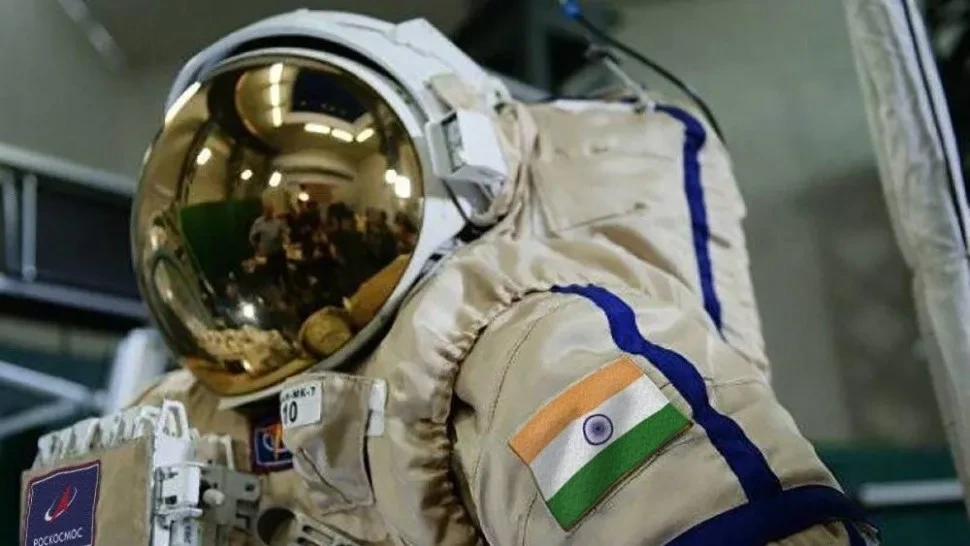A concrete vision and action agenda to intensify India-Russia cooperation in the fields of nuclear energy and space research programmes will be ready as Prime Minister Narendra Modi and Russian President Vladimir Putin sit down for the 21st India-Russia Annual Summit in New Delhi on Monday.
Civil nuclear cooperation through the Kudankulam Nuclear Power Plant in Tamil Nadu and space exploration via the Gaganyaan programme remain important components of India-Russia Special and Privileged Strategic Partnership.
Russia is expected to play a major role as India goes ahead with its large nuclear power expansion to ensure the country's long term energy security.
Things have moved at a fast pace since December 2014 when the Department of Atomic Energy (DAE) and Russian State Atomic Energy Corporation Rosatom signed the Strategic Vision for strengthening cooperation in peaceful uses of atomic energy.
As reported by IndiaNarrative.com in June, the Kudankulam site – presently having two reactors in operation and another four under various stages of construction – will have a total capacity of 6000 MW and will be referred to as a Nuclear Power Park on progressive completion of units 3 to 6.
On October 26, as the Transfighter vessel with shipload cargo for Kudankulam left Saint Petersburg for the port of Tuticorin, Rosatom confirmed that it has set the wheels in motion for equipment delivery for power units 5 and 6.
The government told Parliament today that, in order to boost generation of nuclear power, it has accorded administrative approval and financial sanction for new nuclear power projects totaling to 9000 MW. On progressive completion of the projects under construction and those accorded sanction, the present nuclear power capacity of 6780 MW will increase to 22480 MW by 2031.

The core catcher being installed at the Unit 4 in Kudankulam. This unique Rosatom invention is designed to catch molten core of a reactor in the unlikely event of a meltdown, preventing it from escaping the containment building (Image courtesy: Twitter/@RosatomGlobal)
Taking their partnership beyond the Indian borders, the DAE and Rosatom had also signed a trilateral MoU on cooperation in the implementation of the Rooppur Nuclear Power Plant construction project in Bangladesh along with the Ministry of Science and Technology of Bangladesh.
"Space and nuclear are among the success stories of our relationship. The Kudankulam project was the first beneficiary of India's resumed civil nuclear collaboration with international partners. The trilateral nuclear cooperation that we both have with Bangladesh also holds interesting possibilities," said External Affairs Minister S Jaishankar in his speech on 'India-Russia ties in a changing world' at IMEMO, Moscow, earlier this year.
Meanwhile, as the India-Russia Summit inches closer, Atomic Energy and Space minister Jitendra Singh told Parliament today that India is considering proposals for collaborations and cooperation in space research with more countries "through joint experiments and creating platforms for inflow of expertise".
In a written reply to a question in the Rajya Sabha on Thursday, Singh informed that building of satellites, development of science instruments for earth observation, space science and planetary exploration; new propulsion technologies; sharing of satellite data; human spaceflight support, space situational awareness, training and capacity building in space technology applications are some of the specific areas in which collaboration and cooperation could be possible in future.
During the last India–Russia Annual Summit held in Vladivostok in 2019, both sides had welcomed the increased cooperation between the Russian State Space Corporation Roscosmos and the Indian Space Research Organisation (ISRO), including the human spaceflight programs and satellite navigation.
New Delhi and Moscow had also agreed that it was necessary to exploit to a greater extent the potential of India and Russia in development of launch vehicles, construction and utilization of spacecraft for different applications, as well as research and use of outer space for peaceful purposes, including planetary exploration.
"Our long association in space is touching new heights. Astronauts of India will receive training in Russia for Gaganyaan, i.e. Indian Human Space Flight," PM Modi had said during his visit to Vladivostok, two years ago.
With the creation of the Indian National Space Promotion and Authorisation Centre (IN-SPACe) as part of the space sector reforms, the science and technology partnership between the two countries could be taken forward with the participation of the private sector.
Also Read: Ahead of his visit, Putin praises India as one of the hubs of a multipolar world
Also Read: Putin likely to flag key military partnerships under ‘Atmanirbhar’ logo during pathbreaking visit to India




















